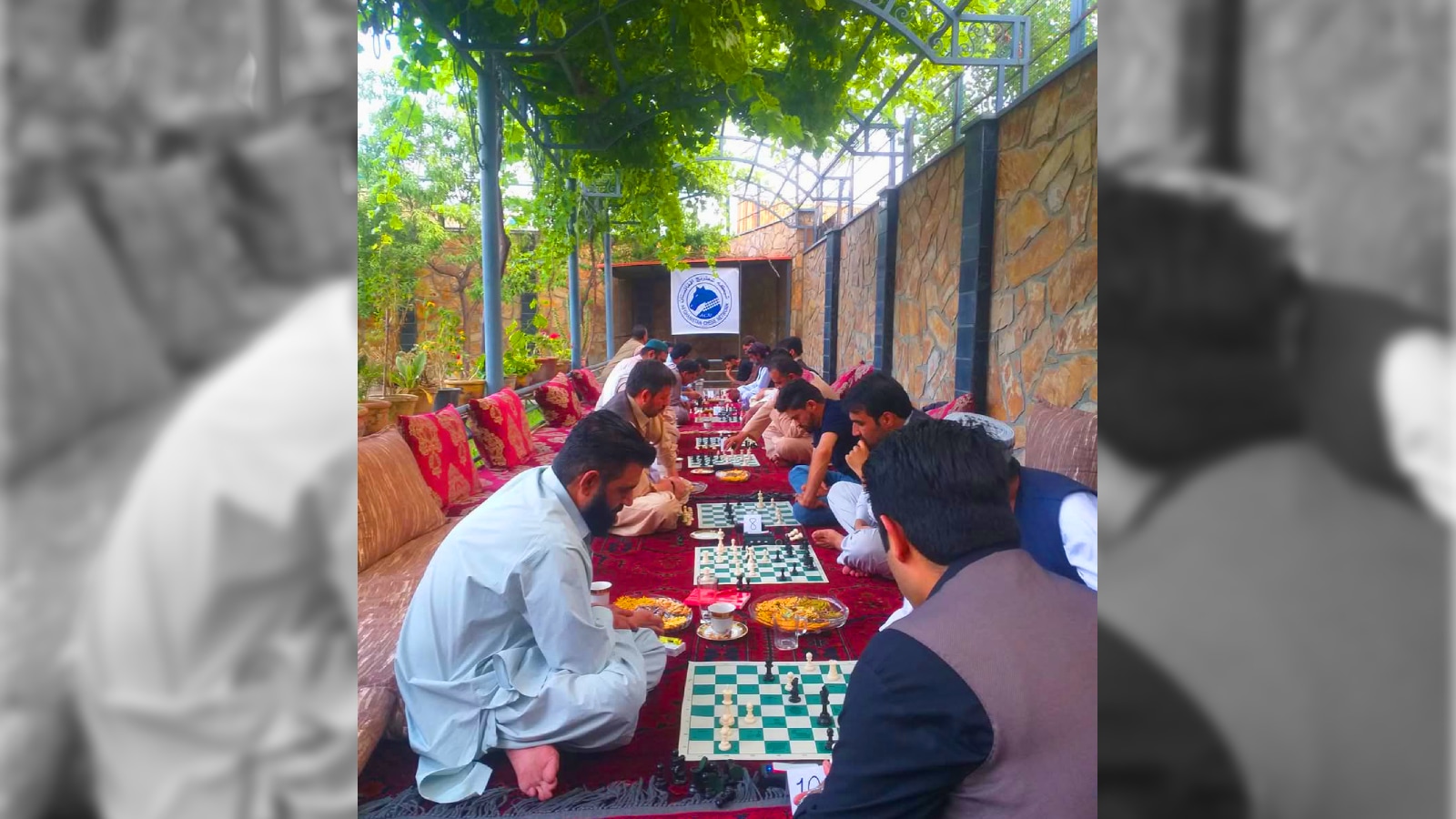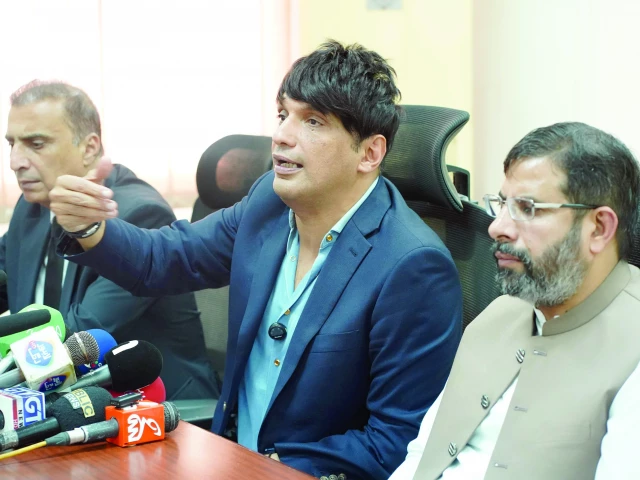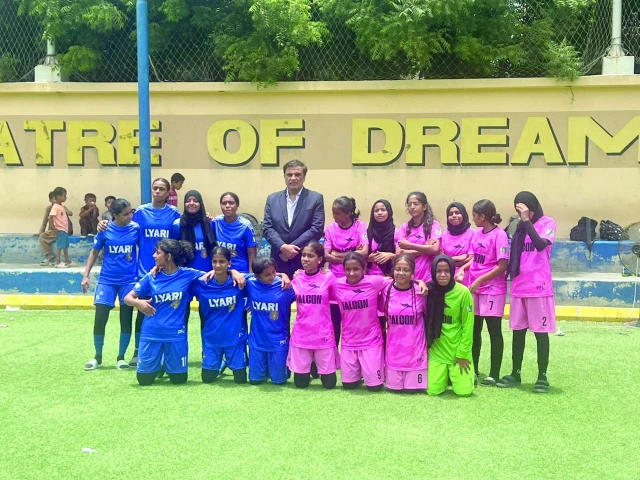How the sport became haram overnight

The man on the other side of the line wants to be called Shuja. It’s not his real name. It’s a pseudonym that he makes up on the spot during the long-distance phone call to ensure his safety. He is, after all, currently living in Afghanistan, where 10 days ago, chess – his enduring passion since childhood – was outlawed with an edict from the all-powerful Amr bil Ma’ruf wa Nahi ‘an al-Munkar (the Ministry for the Propagation of Virtue and the Prevention of Vice under the Taliban). With one decree, chess became a dangerous pursuit overnight. Playing the sport in Afghanistan is now haram. Forbidden.Shuja, he explains, in the local language means ‘to be brave’. Having any link to the now-forbidden shatranj while living in Afghanistan requires plenty of courage after the sport was temporarily suspended in the country due to “religious considerations”. The phrase temporary suspension is a false dawn: since the government has not provided any timeline for the suspension to be lifted or remedial measures that the sport must take for the suspension to end, it’s as good as a long-term ban.“If a tournament is organized in Afghanistan now, the organisers and the players will be arrested. There will be so many punishments,” says Shuja. Since English is not his first language, he’s asked another player, Sulaiman Ahmad Ashrafi, who was part of the Afghanistan team that won a gold medal in the D category at the Batumi Olympiad in 2018, to translate.Story continues below this adAshrafi, who has allowed the use of his name because he does not live in Afghanistan anymore, takes a break from translating to elaborate. “There is no clear law that says what will happen if you are caught playing chess. They are explaining that we are doing this according to Sharia Law. But if they get arrested, it will be kind of a jungle law. So whatever they want, they can do,” says Ashrafi.Ashrafi also explains how just the suspicion of playing the sport can have other consequences. He speaks of the multiple ‘punishments and threats’ that could be used against anyone involved with the sport. “They will check your mobile. If they find, for example, one picture from the previous leadership, they will think that you have connections to them or you are supported by them. Then, they will slap you with another charge and force another penalty on you. Or let’s say they find a girl’s picture on your mobile, they will ask who this is, is she related? So, they have allowed themselves to do anything to you.”The sport has long irked the current powers that be, not just because they believe it to be a form of gambling, but also because they felt it distracted the masses from their prayers. The imprint on the sport of the Soviet Union, the country’s one-time invaders, is also unmistakable.“Chess in Islamic sharia law is considered a means of gambling”, Atal Mashwani, a spokesman of the Taliban government’s sports directorate, told news agency AFP while confirming the ban. “There are religious considerations regarding the sport of chess. Until these considerations are addressed, the sport of chess is suspended in Afghanistan,” he added.Story continues below this ad‘Why is chess dangerous?’This explanation has angered the chess community, who reason that other Islamic chess nations have not banned the sport. “Chess is not haram for all other Islamic countries. Why is chess dangerous for the Taliban? Because it improves knowledge and IQ. They are against knowledge, growth and development. When they captured Kabul, they first banned education for women. Now, look at the school for boys, they study mostly Islamic subjects rather than science,” says Ashrafi.The ban on the sport came suddenly. But for those involved with the sport, it was not surprising. The sport was also banned in Afghanistan in the previous iteration of the Taliban government. The country’s chess fraternity had been bracing itself for impact ever since the Taliban usurped power in August 2021 after the US and NATO forces withdrew from the country. Soon, all office-bearers of the Afghanistan National Chess Federation (ANCF) left the country and are currently operating out of exile.The first casualties of the Taliban coming back into power were female athletes: the government banned women and girls in the country from participating in all sports. At last year’s Paris Olympics, three Afghan women athletes, who live in exile, represented Afghanistan. The Afghan women’s cricket team is also based out of Australia.A tournament for women in Afghanistan before the takeover by Taliban. (Special arrangement) A tournament for women in Afghanistan before the takeover by Taliban. (Special arrangement)‘Not entirely unexpected’Ghulam Ali Malak Zad, the president of the Afghan chess federation, tells The Indian Express that they left the country as soon as they could because the Taliban started investigating and interrogating even professional athletes and teachers. ANCF officials had to flee the country because they were officially involved in the running of the sport. Many players stayed back because none of them were in the sport as a means of subsistence: all chess players in Afghanistan have other professions and play chess on the side for passion.Story continues below this adGhulam Ali Malak Zad, the president of the Afghan chess federation, addresses a room full of chess enthusiasts before the Taliban seized power. (Special arrangement) Ghulam Ali Malak Zad, the president of the Afghan chess federation, addresses a room full of chess enthusiasts before the Taliban seized power. (Special arrangement)“We were in Afghanistan when the Taliban seized power in August. But the leadership of the chess federation felt threats from the Taliban. That’s why we left at the start of September. Even leaders of the National Olympic Committee left the country,” Malak Zad says before adding: “We are in touch with all players in Afghanistan. We do not have any information regarding any punishment for playing chess in Afghanistan as of now. But you can’t even play the sport privately at home since the ban.”The threat to lives for a “crime” like playing chess persists, though. For FIDE, the global governing body of chess, the departure of the leadership of the Afghan Chess Federation from the country—due to personal safety concerns—was a clear signal that the environment for chess had become more difficult, Dana Reizniece, Deputy Chair of the Management board of FIDE, told The Indian Express.“In that broader context, the suspension, while disappointing, was not entirely unexpected,” Reizniece, who is leading FIDE’s response to the Afghanistan situation, says. She adds that FIDE was given no warning by the Taliban government about the ban. FIDE is currently contemplating its next move. As the international governing body, FIDE does not have direct contact or communication with the Afghan government. It usually maintains relations with authorities through the national federations, which act as a primary contact in each country. But since the ANCF is currently in exile, the situation is tricky.“We’re exploring the possibility of outreach through trusted intermediaries within the wider chess and international sports community,” she says. “While our direct contact with players and clubs inside Afghanistan is currently limited, we are actively exploring ways to support the local chess community. FIDE will do all it can to find a solution to enable Afghan players to continue to participate in international chess competitions. We are assessing how best to engage. Any such efforts must be carefully considered given the context on the ground.”Story continues below this adThe three people that The Indian Express spoke to in the Afghan chess community said that currently, there are no reports of anyone being punished or jailed for playing chess or organising a tournament. But that’s because when the edict was made public, the sport just stopped dead. Three days after the ban was declared, a rapid, rated tournament was supposed to be held in one of the biggest cities of Afghanistan, the sort of event that a fledgling player with ambition would circle on their calendar. Just under 100 players were supposed to play in it. That never happened.Afghanistan does have a history with the sport, says Malak Zad. “Chess in Afghanistan has a history of more than half a century. A long time ago in Afghanistan, even when chess was not a thing, people used to play it in restaurants. It was a cultural thing. People would play even in parks and at home. If they had a party, and they played traditionally.”Chess was just starting to flourish in Afghanistan. For many decades, it was looked at as a form of entertainment. But over the recent years, with ANCF and FIDE efforts, there had been some professionalism coming in among the players. In the past two years, there were at least four FIDE-rated events in the country. The sport used to have an imprint in 28 provinces in the country. According to FIDE records, Afghanistan has 528 recorded players. There are no Grandmasters or International Masters yet. But the country has five FIDE Masters and five registered Candidate Masters each.“We used to have local tournaments weekly in the country. So many prize-money tournaments, rated tournaments, rapid, blitz… all of these would happen in the country before the ban. But right now, there are no tournaments. Some chess players are under tremendous pressure,” says Shuja. “Some of the players play secretly, at home by themselves. But even to do that, we are scared.”













